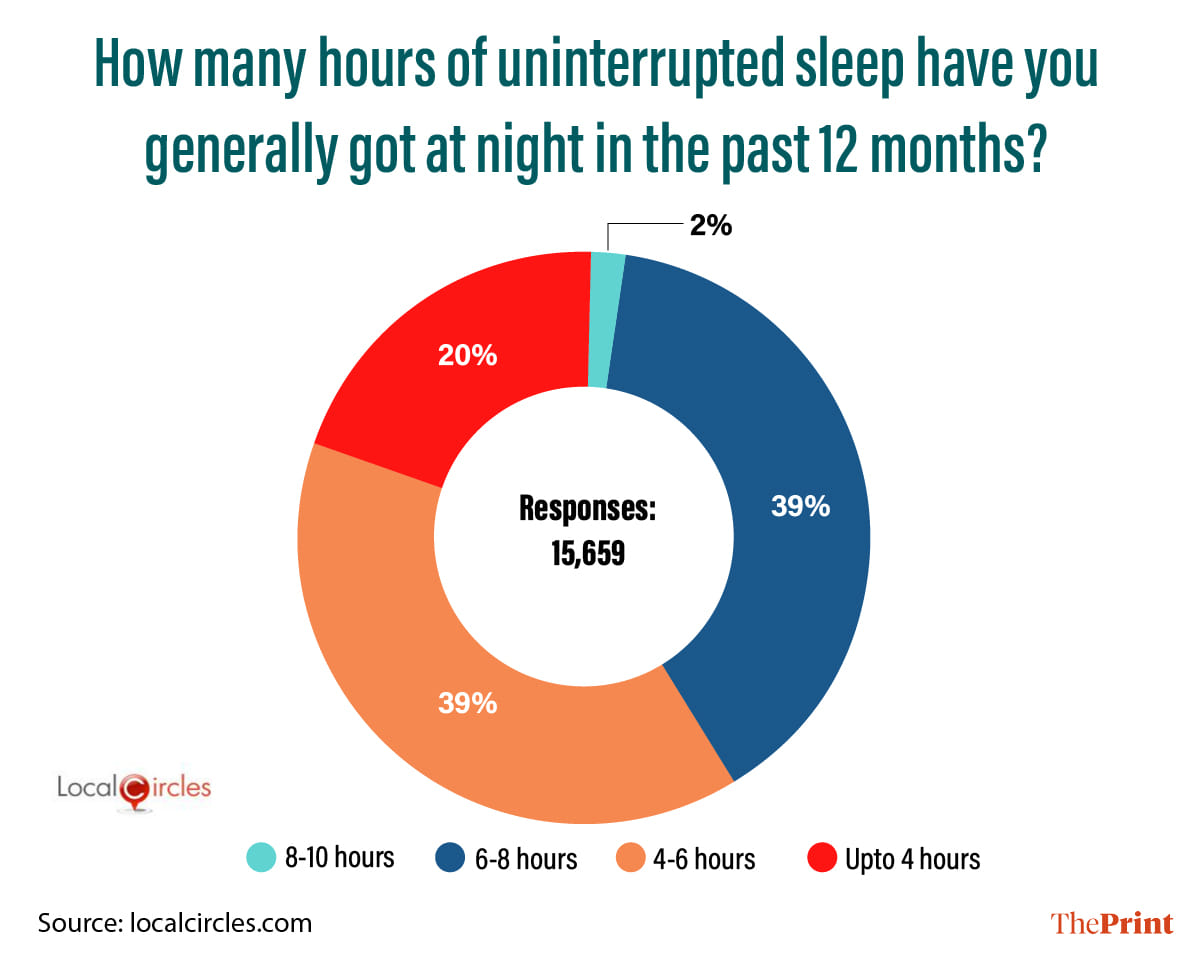New Delhi: Up to 59 percent of Indians say they get less than six hours of uninterrupted sleep daily, according to a new survey. Titled ‘How India Sleeps-2025’, the survey by LocalCircles, a citizen engagement platform that conducts surveys and opinion polls on public policy and social issues, was conducted ahead of World Sleep Day on 14 March.
For this survey, LocalCircles collected responses from more than 43,000 citizens from 348 Indian districts. Sixty-one percent of the respondents were men while the remaining 39 percent were women.
The findings raised several questions, including how many hours of uninterrupted sleep respondents generally got at night in the past 12 months and what are the things Indians do to make up for the lack of sleep during the week. The survey found that frequent night-time disruptions were a significant factor affecting sleep continuity.
Sleep cycles can vary from person to person and from night to night based on a wide range of factors, such as age, recent sleep patterns, metabolism, dinner time, usage of screen before going to bed and alcohol consumption, the survey report released Saturday highlights. “During healthy sleep, a person progresses through a series of sleep cycles, each of which is made up of distinct sleep stages,” it notes.

Among those experiencing sleep interruptions, 72 percent of 14,952 respondents cited waking up to use the washroom as the primary reason, 25 percent could not sleep due to poor schedules, 22 percent due to external noises and mosquitoes, 9 percent due to medical conditions like sleep apnea, 9 percent due to partner or child-related interruptions, and additionally, 6 percent faced sleep disturbances due to mobile calls or messages.
The survey report suggested that insufficient and fragmented sleep has been linked to several health concerns, including cardiovascular diseases, metabolic disorders such as type 2 diabetes, and cognitive impairment. According to sleepfoundation.org, the report said, interrupted sleep can have long-term effects on brain function, physical health, and emotional well-being.
The survey also explored how Indians try to compensate for sleep loss. While 36 percent reported taking Sunday afternoon naps, 23 percent extended their sleep time on weekends, and 13 percent slept longer on holidays.
It further said that the potential effects caused on the brain and body due to this can indicate that healthy sleep requires avoiding disruptions that inhibit sleep continuity.
“Disorders like restless leg syndrome and bruxism are known to disrupt sleep. Other conditions, including nocturia, cardiovascular issues, as well as hormonal, lung and neurological problems may threaten sleep continuity,” the report said, adding that certain prescription drugs can have sleep-related side effects.
To promote better sleep, the survey report suggested 10 tips, including maintaining a consistent sleep routine, reducing caffeine intake, limiting screen exposure before bed and investing in comfortable bedding.
(Edited by Nida Fatima Siddiqui)
Also Read: 61% parents say their child spends at least 3 hours online everyday, says Local Circles survey






